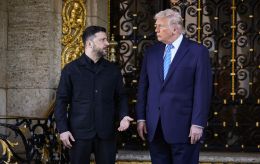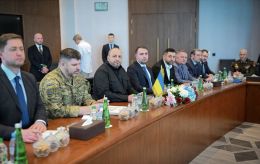'Putin is a war criminal. That will never change.' Interview with Mark Ellis
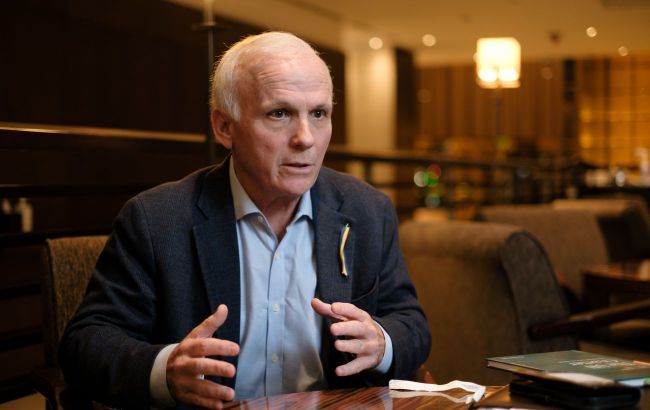 Mark Ellis, Executive Director of the International Bar Association (All photos: Vitalii Nosach/RBC-Ukraine)
Mark Ellis, Executive Director of the International Bar Association (All photos: Vitalii Nosach/RBC-Ukraine)
Why the Special Tribunal cannot convict Vladimir Putin, how Russia's war against Ukraine is destroying the foundations of international law, and whose side US President Donald Trump may lean toward — read in an interview with the Executive Director of the International Bar Association and international law expert Mark Ellis.
US President Donald Trump has been in office for nine months. He campaigned, among other things, on the promise to end the war between Russia and Ukraine within 24 hours. However, the war continues, and the American president seems unsure of what to do about it.
Numerous talks with Russian leader Vladimir Putin have produced no tangible results — Russian forces continue attempts to seize Ukrainian territories and regularly shell civilian cities. Trump has repeatedly shifted his stance, at times expressing disappointment in Ukrainian President Volodymyr Zelenskyy, and at other times in Putin.
Meanwhile, the European community is trying to build a model for a tribunal against Russia without abolishing the diplomatic immunity of the Russian "troika." It is already clear that Putin and others responsible for unleashing the war are unlikely to face trial. And it seems that Ukraine and Europe will have to resolve this issue without US assistance.
RBC-Ukraine spoke with Mark Ellis, Executive Director of the International Bar Association and an expert in international law, about the tribunal, international law, and Trump's complicated relations with authoritarian regimes.
Special tribunal and Putin's future
— So, about the tribunal. We agreed with our allies, like 40 countries, European countries, finally we agreed upon this new hybrid model, and finally we could charge Russia and its so-called "troika," and we couldn't get him in prison, but we could charge them. Would it be helpful for Ukraine? And would it be the best model for us? Or we should make it better?
— It was already a major step to agree to create this tribunal, at least in its initial form. Much work still remains to make it fully operational, and that is what key individuals - and Ukraine - are now focused on.
The creation of the tribunal involved complex political negotiations among a core group of around 40 countries. As with any such process, compromises had to be made. It is not a perfect tribunal, but it will be an effective one.
One of the most contentious issues during negotiations concerned head of state immunity. Some countries opposed recognizing it, pointing out that the International Criminal Court and UN Security Council-created tribunals do not recognize such immunity. This is correct. If the tribunal were truly international, it could also possibly ignore the principle. But the political reality was different.
While a "hard" core group resisted recognizing head of state immunity, key states - particularly within the G7 - insisted on it. They made clear they would not support the tribunal otherwise. Their concern was not only about altering the foundations of customary international law, but also about the precedent that a similar tribunal could set against their own leaders.
The final compromise is reflected in the statute. On the one hand, Article 4 declares that the tribunal does not recognize personal immunity. Legally, this seems clear. But in practice, the statute prevents proceedings against members of the so-called "troika." If an indictment were sought against such a person, a pre-trial judge would be required to suspend proceedings.
In other words, de jure the tribunal rejects head of state immunity, but de facto it upholds it. This compromise means that as long as Vladimir Putin remains in office, the tribunal cannot prosecute him. Civil society groups have criticized this, but I have not. This is the political reality of establishing such a tribunal.
The question then becomes: should we abandon the tribunal altogether because it cannot, for now, pursue Putin? My answer is no. The tribunal still allows for investigations, the preparation of case files, and the issuance of indictments. Would it have been preferable for the tribunal to reject head of state immunity both de jure and de facto? Of course. But given the circumstances, the outcome is still a significant achievement.
— But for me and for Ukrainian people, and I think for the world also, it's obvious that Putin will be in his chair until his death, and he wouldn't be in prison, I think. I know that the world is full of magic and tricks, but I think that it wouldn't happen.
— Well, Saddam Hussein never imagined he would be held accountable. I lived in the former Yugoslavia, and I can assure you that Slobodan Milosevic never believed he would be removed. The same goes for Charles Taylor, and for Omar al-Bashir of Sudan, who surely didn't expect his downfall.
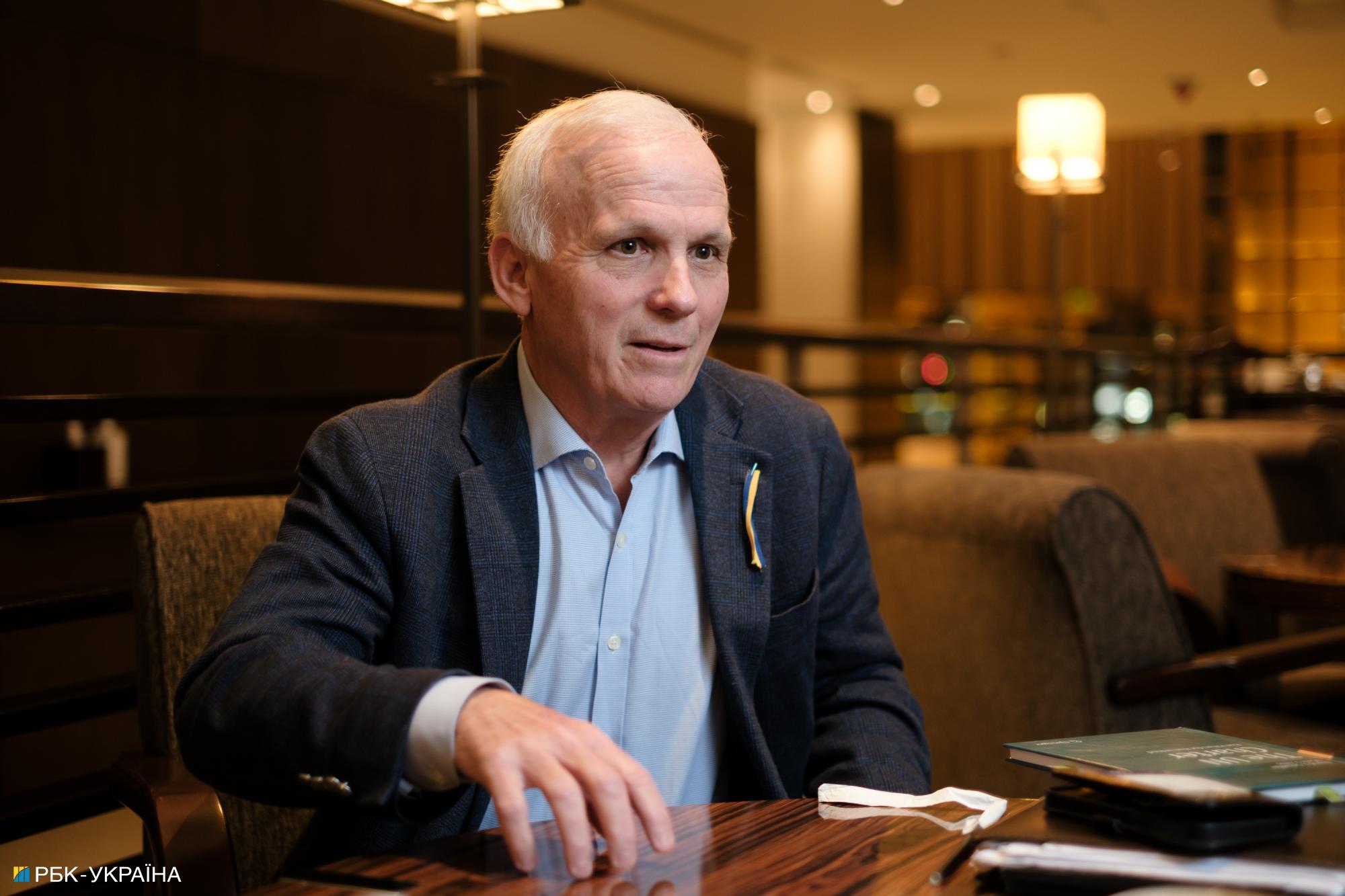
History is full of such examples: leaders who believed themselves immune to change, only to be proven wrong. Now, I agree - it's hard to envision a popular uprising in Russia that would remove Vladimir Putin. Realistically, he will not be appearing in The Hague anytime soon, whether under the ICC arrest warrant or through any special tribunal.
But there is no statute of limitations on these crimes, and international justice always plays the long game. We must keep pressing forward in the hope that, eventually, Putin will lose his immunity. I happen to believe that day will come. I’m not entirely convinced he will die in office before facing justice.
— Russians love him so much that I think that...
— I can’t argue with that - I think you're right. One of the key issues is how the international community, and especially the United States, responds—or fails to respond - to Putin. That will directly influence whether or not he survives politically. If Putin and the Russian people come to believe Putin has been successful in this war against Ukraine, he will endure. That's why I’ve always said it’s so important that Ukraine must prevail.
Putin needs to fail not only for Ukraine's sake and for accountability, but also for the stability of the entire international legal order. The outcome of the war is still very much undecided. But I believe that if there is a policy of appeasement, particularly from the US, we become complicit in enabling and supporting Vladimir Putin. And that is a serious problem.
Negotiations with Russia and Trump's role
— Also, I would like to talk about Russia's demands. For now, we have a weak negotiation process. This is not quite negotiations. But we are preparing for them, and the USA is preparing for them, and Trump also wants us to negotiate with Russia, and to have this trilateral meeting with Putin and Trump, and a bilateral meeting with Putin only. But we don't want to go to Moscow, and Putin said that he will speak with us only in Moscow. Putin understands that this is an absurd offer, so that's why he offered it. The question is, does Trump understand that this is an absurd offer, or does he think that maybe that will work, so we should do that?
— If you're asking me to assess Trump's mind, that's difficult.
— You can say your opinion, if you want.
— I'll say what I've already said publicly about Trump's interactions with Putin. The problem with Trump is clear. I remember being here in January, and there was excitement because Trump was saying, "I’m going to end this war. Putin will do what I say. If he doesn't, I'll respond hard."
But as I said then, none of these positions seems to last. Unfortunately, I believe that Trump will always default to Vladimir Putin. I hope I'm wrong. But I believe Trump sees himself as more of an authoritarian leader, and aligns himself with similar authoritarian leaders, and Putin fits this mold. At times, Trump may give people hope with one of his erratic statements on Truth Social, but what he says today will likely be contradicted by what he says tomorrow. You simply can't depend on it.
So the challenge is to accept the reality of how Trump interacts on the international stage and then build a process that works with him more effectively. That's the only way to move forward.
— By the way, I would like you to make a statement about the Zelenskyy-Trump meeting in the White House in February.
— I happened to be in the United States at the time. I had just finished a meeting and was sitting in my car when the broadcast came on live. I wasn't watching it - just listening on the radio - but even that was crushing. The discussion was depressing, and I realized immediately that the meeting was not going in the right direction. That moment marked a shift in how President Zelenskyy would interact with Trump in the future. It would reflect what I said earlier – recognizing how one has to interact with Trump.
As sad as that is, that's the reality. We’ve seen the consequences of crossing him. Trump now has greater authority - or at least has shown a willingness to use the instruments at his disposal - to attack his perceived enemies and those who disagree with him. That makes it increasingly challenging for the international community to engage with him, but again, that is the reality.
— And just to build a conversation with him is so difficult.
— Yes, it’s very difficult. Trump seems to be unable to distinguish between our alliances and authoritarian governments. He treats them the same. Failing to make that distinction is a serious problem for the international community.
When you single-handedly tear down the very principles that have long defined the United States - principles that, despite flaws, remain fundamental to what makes the country valued - you are dismissing and undermining them entirely. The consequences are not only severe for the United States itself but also for the international community. Without US leadership grounded in those principles, the world faces a dangerous vacuum.
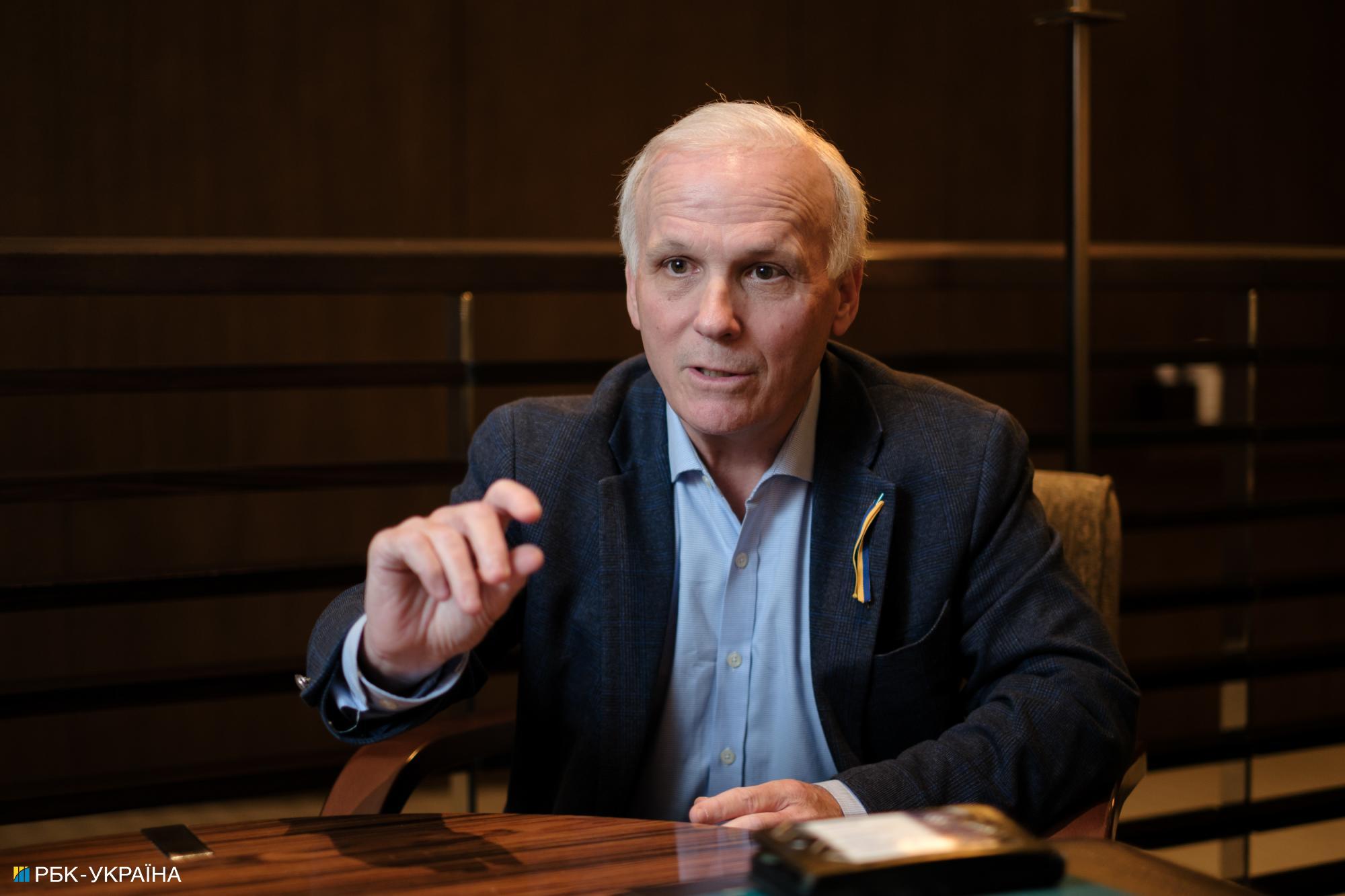 — Unfortunately, because the USA was always for me, it was always like this country, which was in movies, like Independence Day, when it was like a hero would save the world. And for now, I lose hope about it.
— Unfortunately, because the USA was always for me, it was always like this country, which was in movies, like Independence Day, when it was like a hero would save the world. And for now, I lose hope about it.
— I'm just finishing up an article about the decline of US soft power. Hard power - military strength - has always been there. But what once truly distinguished the United States was its soft power: the sense of being a beacon on the hill, embodied in symbols like the Statue of Liberty.
— Yes, American dream.
— American dreams.
— Yes, little houses in suburbs.
— Well, it's the democratic model that has always defined the country. It was the most powerful part of the United States, and it’s disappearing. I’ve just written a book with Ambassador David Sheffer on the UN Charter, reflecting on its pillars as we mark its 80th anniversary. Think about what that document meant to the global community after World War II, and the principles it enshrined. Those principles are now eroding - not just because of Trump, but because they’re being challenged more broadly. If the United States abandons these ideals, it becomes easy for other authoritarian countries to say, "Well, we'll follow that path too."
'Trump administration withdrawing from this responsibility'
— That was my question, by the way. If the US abandons this whole situation with war and negotiations, and if it stops helping us, how would it influence the situation at all? Would it make Putin and other regimes stronger?
— There's no question about that – it is already the case. In just nine months, we have seen the consequences of the United States abandoning an alliance that is vital in countering the actions of authoritarian regimes. The US contribution is not only central to NATO but also to the broader European alliance - the coalition of the willing - grounded in the principles of democracy and the rule of law.
Russia's aggression against Ukraine violates every fundamental principle of international law. If we, as nations that uphold these values, including the United States, truly believe in them as part of our identity and ethos, then we have no choice but to stand against Russia and support Ukraine.
Yet, under the Trump administration, the United States is choosing a different path, withdrawing from this responsibility. That decision has had a domino effect, the consequences of which we are now witnessing.
— Maybe it's not the United States, maybe it's just Trump. I mean, for now, I have a little hesitation about the United States at all, but then I was just really mad at Trump. I'm not mad at Americans because they continue to support us.
— Yes, but American voters did put Trump in office, so they bear some responsibility for that. Still, you're right - someday Trump will be out of office, since his term is limited, unless he somehow tries to change the US Constitution regarding term limits. But the real question is: are Trump's policies over when he leaves office? Will this new "Trumpism" become embedded in the US system?
It's a bit like a pendulum. The idea is that the pendulum swings: it can go pretty far in one direction, but eventually it comes back and shifts again, whether in economics or social policy.
What worries me, though, is this: what if Trump uses his remaining time in office to push the pendulum as far as it can possibly go - and instead of letting it swing back, he somehow locks it in place? What happens then if the current movement never resets?
— Is it possible?
I don't know - that's the question. If he manages to embed this new form of Trumpism - an authoritarian system that disregards the rule of law, undermines the judiciary, attacks the press, and weaponizes the legal system against dissent - then the United States will change in ways we may no longer recognize. That's the direction I fear we’re heading.
On the international stage, his approach to this war shows a striking lack of historical understanding or awareness of the broader consequences if Russia succeeds. He seems unable to grasp what that outcome would mean for the world. That, in itself, is a deeply troubling indictment.
— For me, it's so sad that for him, war is not an issue.
— Yes, it's not a concern, is it?
— Yes, He doesn't hesitate about anything. He doesn't think about people’s lives. Will it kill people? Okay, let it kill people. It's not my problem.
— Yes, sadly, this is the reality.
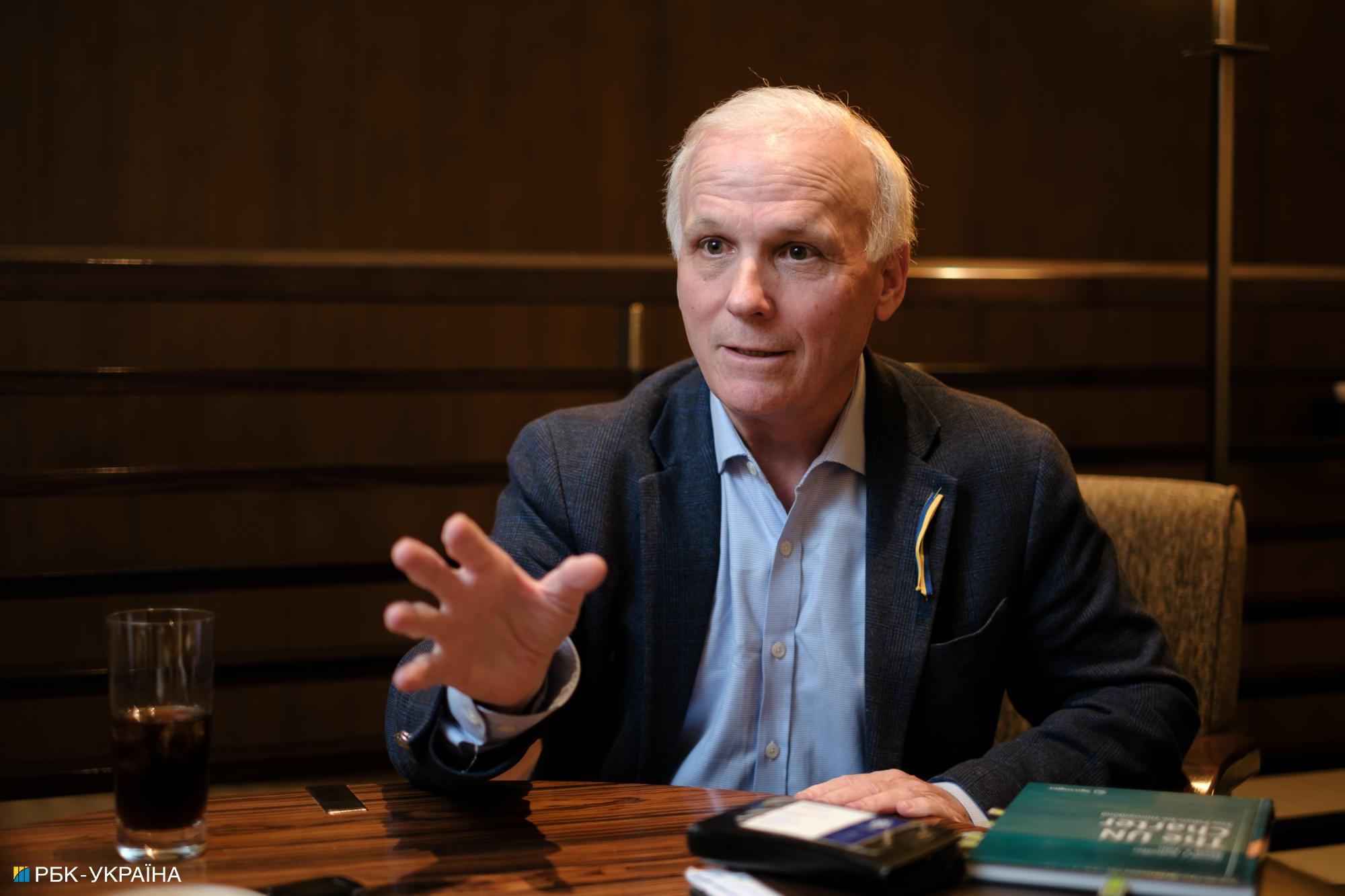
— And the lack of empathy.
— Yes, it's part of a narcissist's view. It also reflects the kind of nationalistic, populist movement we’re seeing in the United States - and elsewhere. It revolves around a strong leader who fosters an "us versus them" mentality, marked by egregious intolerance toward anyone who disagrees. Once again, opposition is weaponized against those perceived as enemies. That is authoritarianism. And it carries very real consequences for the world we live in today.
How the war affects international security architecture
— And one of my questions is about these Russian demands. For example, when they talk about negotiations, they said that we would negotiate with Ukraine, but if Ukraine recognizes their occupied territories as ours. And also, when they withdraw from their territories and give them to us, then we will just negotiate. Not like we will end this war, but we will just negotiate.
My question is, if we imagine this situation, like we get mad and we just recognize our territories as theirs, and we withdraw from our territories, how will it influence international justice? Its structure.
— If the international community - though I can’t imagine Ukraine itself doing this - were to push for a negotiated settlement, it would likely be led by the United States. However, such an approach would not necessarily benefit Ukraine, unfortunately. I don’t think Trump would generally understand the deeper implications of such an approach.
— Crimea, for example.
— Trump has already said publicly that Crimea will not be returned to Ukraine. He has also said, quite clearly, that this is a line not to be crossed.
I want to come back to an earlier statement. If Russia succeeds - if its actions to start the war, to continue it, and to commit crimes during it are effectively legitimized - then Russia is being given a free pass. That is the moment when international law collapses. Because the central principle of the UN Charter is precisely this: the threat or use of force against the territorial integrity or political independence of a state is prohibited. Allowing Russia's aggression to stand would mean that prohibition has failed.
There is no middle ground here, no subtlety to parse. Russia is the aggressor, openly and deliberately. If impunity is granted, the international legal order established after World War II crumbles. The stakes are therefore immense - not only for Ukraine, but for the survival of international law itself.
— I really think that a lot of things would be acceptable now.
— I think you're absolutely right - it does create a new dynamic. The international dimension of law disappears. Instead, states would begin to come together based on other principles - authoritarian states with little or no respect or adherence to international norms.
As a result, new regional bodies, both political and military, would emerge and grow stronger. But unlike the alliances we’ve seen before, these wouldn’t be grounded in the rule of law or democratic values. They would be entirely different kinds of alliances.
The real problem is this: if we destroy or significantly weaken the alliances that were built around the rule of law and democratic principles, what remains are only these alternative alliances. And that’s what’s truly at stake.
— And also, let's criticize Trump a little bit about the international law system. After they met with Putin, it was also a shock when they met in US territory with a red carpet and Trump’s applause to Putin when he came off the plane. Putin is a war criminal. There is an ICC arrest warrant. And now, what we see is a leader of one of the greatest and strongest countries in the world, the USA, who treats him like he's a part of this geopolitical world, and for me, it's wild.
— Yeah, but this is what I said earlier, that he defaults.
— How does this meeting, when Trump took Putin out of international isolation, affect international law?
— You can see how it's happening and what the consequences are right now. Trump believes that he can bring Putin to the table to resolve the war. And yet we’ve seen that Putin always gets the best of Trump. Any attempt to pressure Putin to end the war could have been made by the Trump administration during the meeting in Alaska. But the administration failed to act. And they did not force Putin's hand.
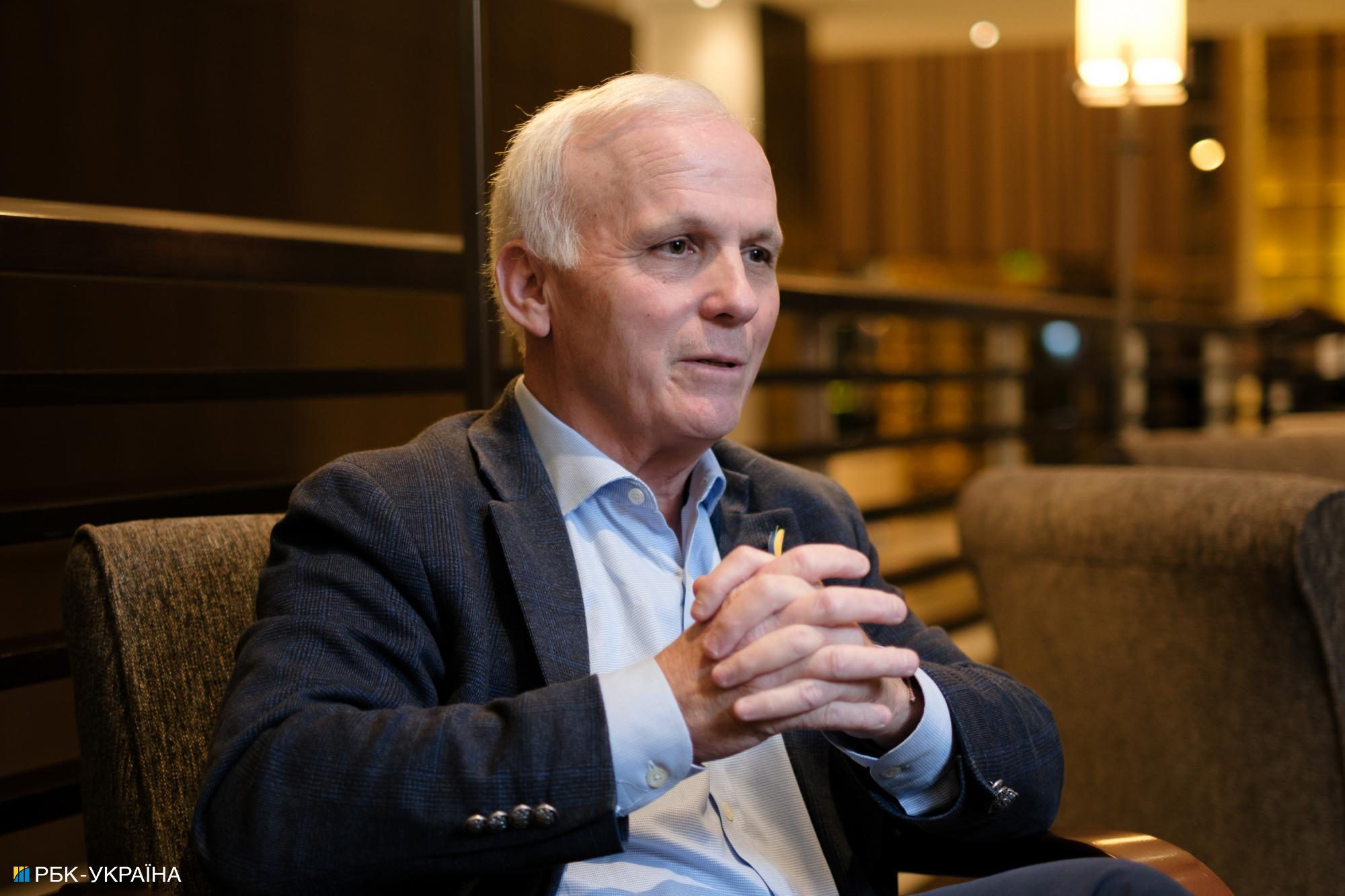
— I think Trump admires Putin in some way.
— He aligns himself with authoritarianism - absolutely. He thrives on that role. Part of the problem is deliberate. Domestically and internationally, Trump has created a chilling effect. Many groups, organizations, and even law firms now refuse to confront him. Some governments in Europe are responding differently, and I understand why. But I keep wondering what would have happened if the democratic world had united and said, "This is unacceptable - we won't tolerate it. If you impose tariffs, so be it." The consequences would have been severe, but it might have changed the political dynamics in the United States. That unified response simply hasn’t materialized.
Domestically, there's also been no strong pushback. Congress has acquiesced in key ways, and we’ll see whether the Supreme Court changes what so far seems a consistent pattern of supporting Trump's aims. The media, law firms, and universities are increasingly backing away - not because they agree with him, but because they feel they can’t fight him alone. I’ve often wondered: why don't these institutions act collectively? If universities, law firms, and media organizations stood together, it would be harder for him to divide them. Division is precisely what he exploits, and it strengthens his chances.
— But recently, he's said critical things about Putin. He said that Putin let him down.
— Yes, he has, but that is not necessarily permanent; it's always short-term.
As much as I've said Trump should counter Putin, Putin is actually countering Trump - in an open, dramatic way. So far, Trump has not made a move on this. I think, deep down, he's asking, "Why would Putin be doing this to me?"
— Yes, that's true. And even after drones on Poland, Trump just said that Europe should cope with this first, and then we would impose sanctions on Putin. It's an attack on Poland, an air invasion.
— Yes, it was an attack on NATO. Trump will never see it that way.
— And what is his red line? Or what is the red line of the world? What should Russia do?
— I don’t think Trump has a clearly defined red line. If you asked him today, I doubt he could give a firm answer. He might try, but his red line is highly flexible. What he says today could shift tomorrow if it suits him. It’s not about principle.
For me, the red line is clear: if you invade another country and violate its territorial sovereignty, that's unacceptable, and it demands a response. But this isn't just about the United States. Back in 2014, when Russia annexed Crimea, the international reaction was not strong enough in response. I said so at the time - if you allow such actions without consequences, you invite more aggression.
There's hypocrisy across the board, so maybe it's unfair to demand that Trump define a red line when many countries themselves shift theirs. Still, I believe the US should have been firmer. Even the Biden administration initially seemed hesitant, too worried about provoking Putin to set clear boundaries. That's not how you deal with an adversary like Putin. At least, over time, Biden recognized the nature of Putin’s threat and adjusted accordingly.
— That he is a criminal. And you shouldn't have a deal with criminals.
— Yes, Biden understood that. And the United States, during the Biden administration, was quite active on international justice.
— And they dealt with the tribunal and helped us a lot. And now, Trump doesn't even recognize the tribunal. I'm sure that he doesn't even think about the tribunal issue.
— One positive aspect of the situation with the tribunal is that the US has not attempted to undermine it, even though it is no longer involved. That, in itself, can be seen as a positive sign. While the US is not engaged - and is unlikely to become engaged - it has not taken the kind of hostile measures it has used against the International Criminal Court, such as sanctions. The absence of such opposition is, in my view, a small but meaningful win.
Sanctions and Putin's status
— I have two last questions. First is about the reaction to drones in Poland. When Russia invaded Ukraine and there was a pathetic reaction from the world, like "We will impose some sanctions and we will have this like fist of sanctions." But it wasn't even a finger of sanctions. And now Russia is just testing the boundaries of the world, "Okay, what if we send drones to Poland?" And then what we see is nothing. Complete nothing.
— Well, I think sanctions are complicated for a lot of reasons. I support sanctions because if you're not going to…
— It's better than nothing.
— Exactly. If you're not going to respond militarily or defensively, then at a minimum, you must use sanctions. But sanctions are like a block of Swiss cheese – lots of holes. The holes are the gaps in the sanctions regime.
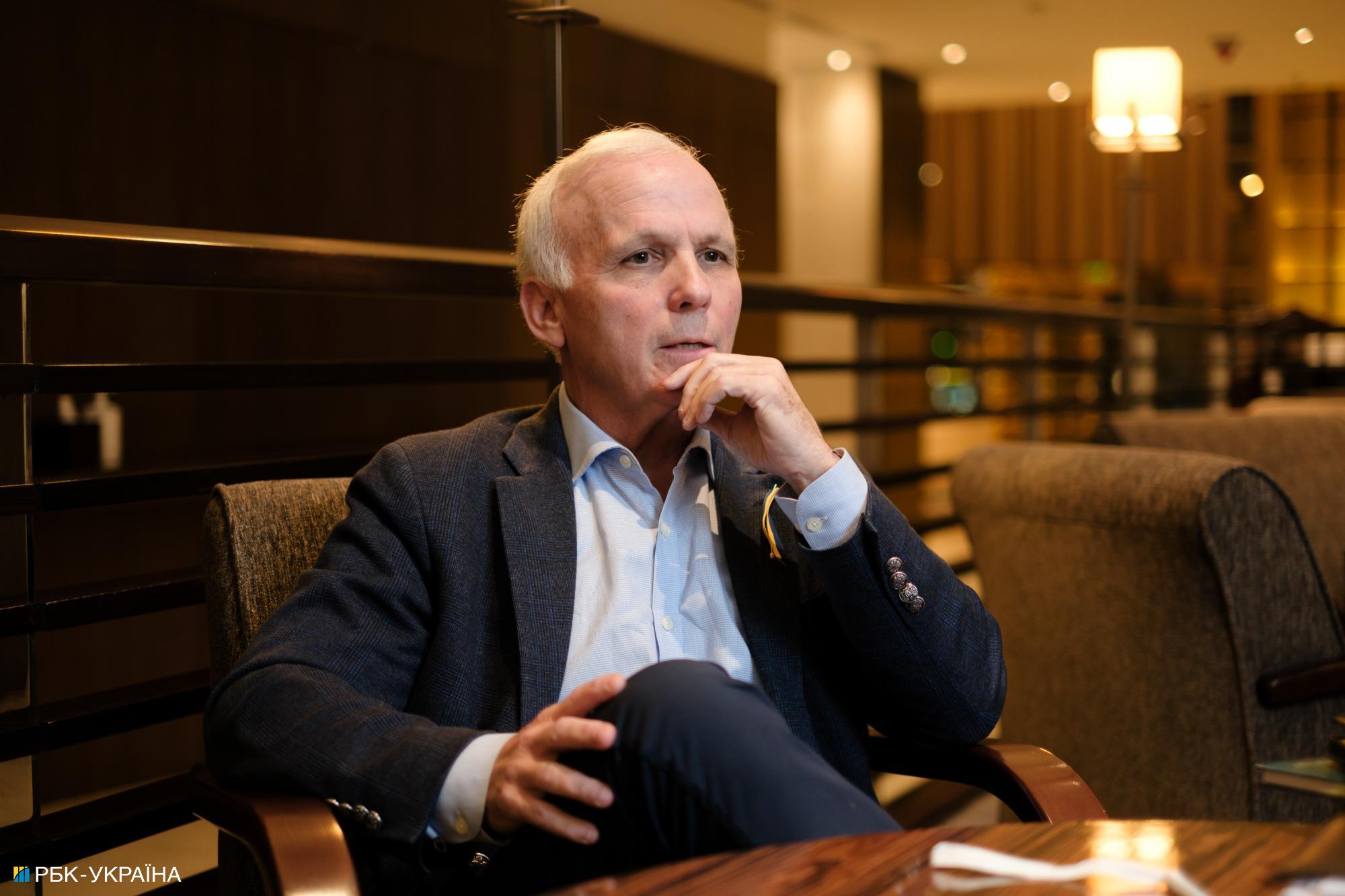
For sanctions to work, there are two essentials. First, you need broad, consistent participation. When countries create gaps - China, India, North Korea, Mongolia, and others - those gaps grow and consequently sanctions lose their bite.
That said, sanctions against Russia have clearly had an impact. The problem is that the longer they remain in place, the more opportunity there is for the sanctioned country to develop workarounds. That's expected - and it brings us to the second point.
Sanctions need to be incremental. If you impose them all at once, you lose the ability to respond later. By splitting and sequencing different types of sanctions, you maintain leverage over time.
That said, people should recognize that sanctions have limitations. They are worth implementing and do have an impact on the targeted country, but like water, ways to counter sanctions often find a way through.
— But again, Russia didn't have an answer. It's trying to test the boundaries, to fill these boundaries, and they don't have an answer. And that's why I think tomorrow, it will not be just 12, 24 drones, it will be two missiles.
— This is interesting. We’ll have to wait and see, but if the evidence points to a deliberate act by Russia, it must be taken seriously.
— What should countries do according to international law with this air invasion of Poland, with this attack on Poland?
— The issue is clear: violating the territory and sovereignty of another country is a breach of international law. Yet such violations happen often. Recently, for example, Israel struck a building in Qatar. Regardless of the justification, in my view, that was still a violation of international law.
The real question, then, isn't whether the law was broken - it was - but what should the response be. In the Middle East, we can watch how Qatar has chosen to handle it. Ultimately, the decision on how to respond is always a political one.
The same applies here. Russia has violated the territorial integrity of Poland. So, what will Poland do - and more importantly, what will NATO do? Will Russia test them again? Russia is now testing Estonia and Finland. This is now a strategic chess game, and caution will be essential.
For the moment, though, Russia seems to feel it has succeeded.
— I'm sure that they will try again. And maybe with more powerful tools than they tried before.
— There's a saying about poking the bear: if you poke it hard enough, it will turn and react. NATO could react with that response, but doing so risks another - possibly global - war, so it will be cautious.
— And the last question is about Putin. For us, it's obvious that it seems like we have some negotiation process, and the USA is trying to put us in this process, and Putin is trying to get rid of this process. But again, the USA now considers Putin as a leader whom they can make a deal with, and also Ukraine can. But for us and for the civilized world, and for the USA as well, he is a war criminal. How does it combine? Is he a war criminal, or is he someone whom we could make a deal with? How could we make a deal with a war criminal? Or is he not a war criminal anymore?
— He is a war criminal in the eyes of the International Criminal Court. That will not change - the indictment and the arrest warrant will remain. Within the UN system, the Security Council has the power to postpone ICC actions, and such postponements can be repeated.
From a legal perspective, this allows the issue to be delayed, but not erased. He is an indicted war criminal, much like Karadžić and later Milošević in the Yugoslav conflict.
Ultimately, it depends on how the international community chooses to handle the situation. My sense is that they will find a way to deal with Putin if he engages seriously in a settlement. Still, the arrest warrant will not vanish. There may be ways of managing it, but it will never simply disappear.
